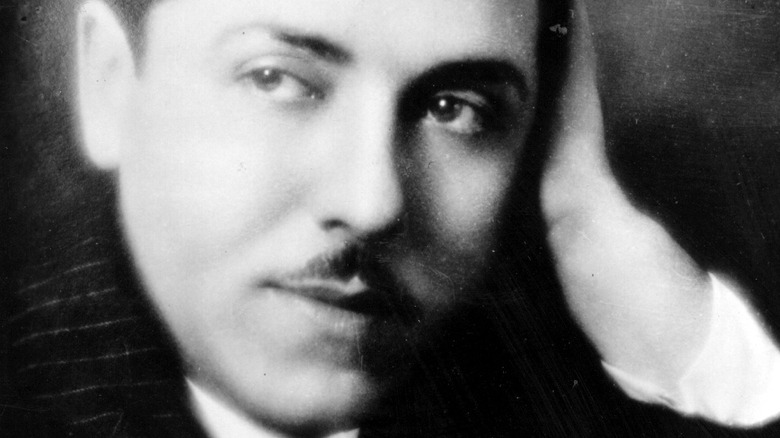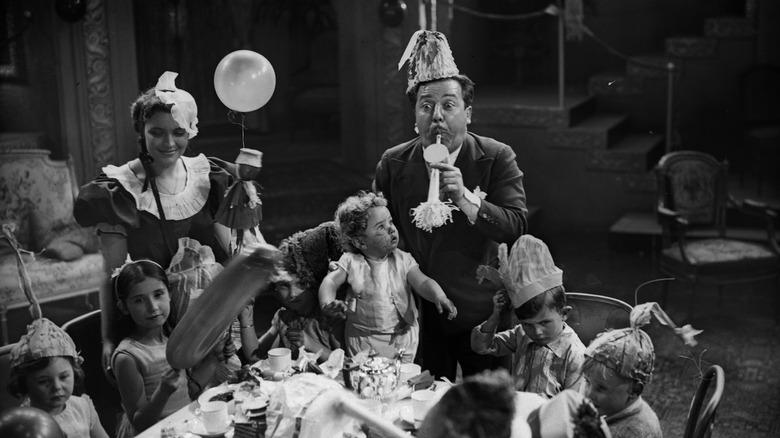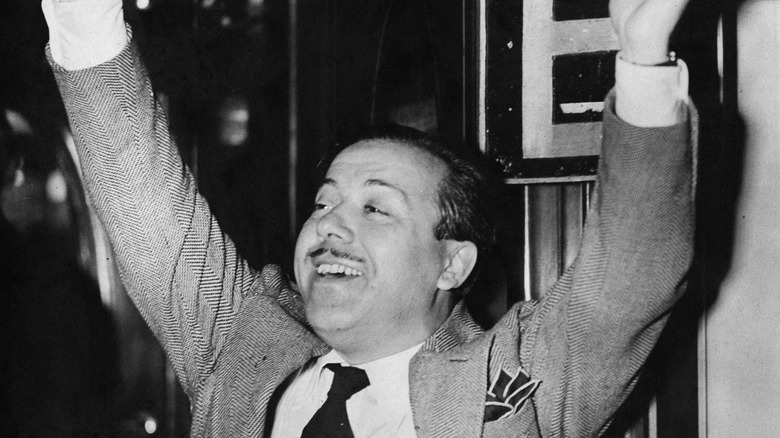20th Century Comedian Monty Banks Was Forced To Leave The UK For A Sad Reason
During World War II there was often a backlash against those who hailed from the countries the United States was at war against. Perhaps most infamously, President Franklin Delano Roosevelt signed Executive Order 9066 in the wake of the attack on Pearl Harbor. According to History, this executive order enacted a policy of placing people of Japanese descent — even U.S. citizens — in internment camps from 1942 through the end of the war in 1945.
During World War I, there was heavy anti-German sentiment in the United States, which reemerged during the outbreak of World War II. Views like this were not limited to the United States, and the United Kingdom was guilty of similar knee-jerk policies once they became involved in the war. When Italian dictator Benito Mussolini declared war on the United Kingdom on June 10, 1940, all 20,000 Italians living in the country became enemy aliens, and men between 16 and 70 years old who had been in the UK for less than 20 years faced the possibility of internment, according to The National Archives. Some fled the country to avoid internment camps, including one of the nation's most well-known comedians, Monty Banks (via Time).
Monty Banks was a silent film star
In the 1920s, Monty Banks was a major silent film star and worked alongside Mack Sennett, who according to Britannica, was a huge influence on silent comedies. When sound made its way into the film industry, however, Banks' career took a substantial hit. This was because the man known as Montague "Monty" Banks, was actually born Mario Bianchi, and he hailed from Cesena, Italy. His thick accent made it hard for him to continue working as an actor in Hollywood, so he shifted his focus to working behind the camera and directed several films starring his wife, actress Gracie Fields (via Gracie Fields official website).
When Italy declared war against Great Britain in 1940, Banks' Italian citizenship landed him on the list of enemy aliens, and he and Fields needed to think fast to avoid internment. Fields reportedly said that 'If they intern Monty, they intern me with him,' but the opportunity to intern Monty Banks never came because he and his wife fled across the Atlantic Ocean, first to Canada and then to the United States.
Banks' and Fields' decision was harshly criticized
While fleeing the country certainly seemed to be the couple's only option, it was one that Monte Banks and Gracie Fields had to have known would come with a fair amount of criticism from the press and British citizens. They were cast as villains for leaving the country at a time of war, even though fields spent much of her time away raising money to support the British war effort (via Gracie Fields official website).
According to a Time Magazine article from 1947, the fundraising endeavor appears to have been in the name of image rehabilitation as much as it was as an act of patriotism. Still, it took five years of traveling and fundraising — plus two more years of waiting for things to cool down after the conclusion of the war — before Banks and Fields were no longer looked upon as deserters. Fields returned to Great Britain where she worked with the BBC to produce a show called, appropriately enough, "Our Gracie."
While Banks and Fields were no doubt happy to be back in the good graces of the British public, tragedy struck just a few years later. The couple was aboard the Orient Express in Banks' home country of Italy — after returning from spending the holidays with Fields' family — when Banks died in his wife's arms, at the age of 52.


